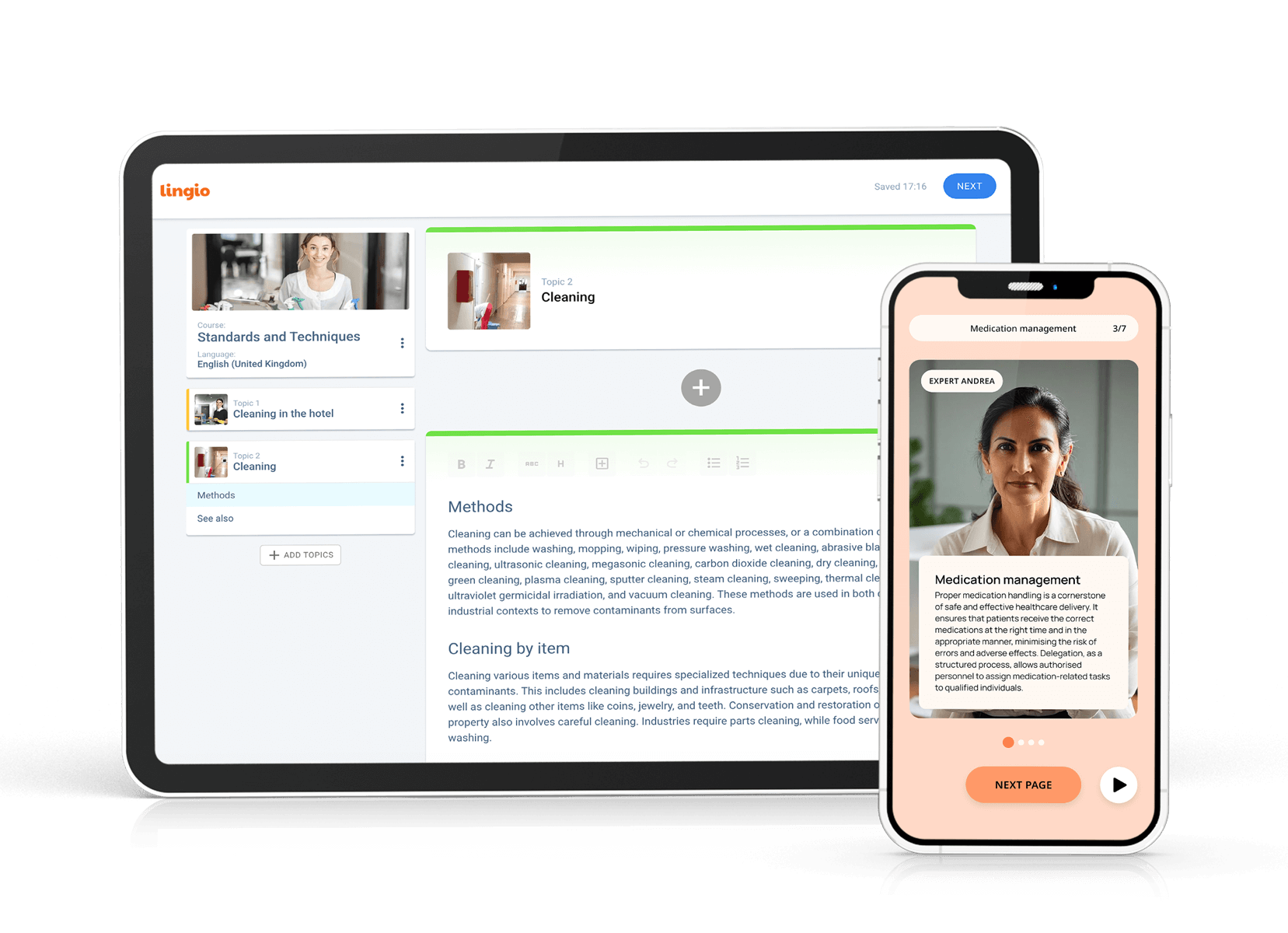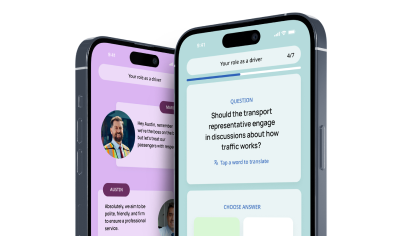With online reviews and social media platforms playing a significant role in shaping consumer decisions, hotels must manage their online reputation actively. Engaging with guests consistently throughout their stay as part of the guest journey is crucial for effective reputation management. This article will discuss ten proven recommendations that can help boost your hotel’s reputation and attract more guests.
What is hotel reputation management and why is it important?
Hotel reputation management is the process of monitoring and influencing a hotel’s online reputation to build a positive brand image. This involves actively reading and responding to guest reviews, maintaining a vibrant social media presence, and optimizing the hotel’s website to ensure it reflects the quality and uniqueness of the property. Effective hotel reputation management is crucial for hotels to stay competitive in the market, as it directly impacts their ability to attract potential guests and increase bookings.
In today’s digital age, a positive online reputation can lead to increased revenue, improved guest satisfaction, and a competitive edge in the hospitality industry. Potential guests often rely on online reviews and social media feedback when making their booking decisions. Therefore, a well-managed online reputation can significantly enhance a hotel’s appeal, encouraging more bookings and fostering guest loyalty. By prioritizing reputation management, hotels can ensure they are perceived positively, which is essential for long-term success.
The importance of hotel reputation management
A hotel’s reputation can make or break its success in today’s hyper-connected world. A hotel's online reputation is a critical factor in guest satisfaction and booking decisions. Positive online reviews and a robust social media presence can significantly impact a hotel’s revenue potential. On the other hand, negative feedback or poor online visibility can deter potential guests and harm a hotel’s bottom line. This is why proactive reputation management is crucial for hotels of all sizes.
One key aspect of hotel reputation management is monitoring and responding to online reviews. By allowing consumers to trust online reviews, promptly address negative feedback, and engage with guests who leave positive reviews, hotels can demonstrate their commitment to customer satisfaction and improve their overall reputation. This level of engagement can also build loyalty among guests, encouraging them to return for future stays and recommend the hotel to others.
Furthermore, a solid social media presence is essential for hotels to connect with potential guests and showcase their unique offerings. By regularly posting engaging content, sharing updates on promotions and events, and interacting with followers, hotels can increase brand awareness and attract new customers. Social media platforms also allow hotels to receive direct feedback from guests and address any concerns in real-time, demonstrating transparency and a commitment to quality service.

Tip 1. Leverage online reviews
Online reviews have become a powerful tool for travellers when making accommodation decisions. Review scores significantly influence business performance and pricing strategies for hotels. Encourage satisfied guests to leave positive reviews on popular platforms like TripAdvisor or Google Reviews. Craft personalised thank-you emails or messages to guests after their stay, inviting them to share their experiences. Respond to reviews promptly and professionally, whether they are positive or negative, to show your commitment to guest satisfaction.
Furthermore, it’s essential to monitor online reviews regularly to gather insights into areas where your accommodation excels and where improvements can be made. By using review data and analysing feedback trends, you can identify recurring themes and address common issues to enhance the overall guest experience. Consider implementing a system to track and categorise reviews based on different aspects such as cleanliness, customer service, amenities, and value for money.
Moreover, engaging with online reviews benefits your accommodation’s reputation and allows businesses to build a loyal customer base. When guests see their feedback is valued and acted upon, they are more likely to return and recommend your establishment to others. Encourage a culture of feedback and continuous improvement within your team to ensure that guest satisfaction remains a top priority.
Tip 2. Implement guest feedback surveys
Guest feedback surveys are an excellent way to gain insights into your hotel’s strengths and areas for improvement. Understanding how guests experience their stay, from pre-stay to post-stay, is crucial for enhancing services and improving your online reputation. Provide guests with post-stay surveys focusing on their overall experience, room cleanliness, staff service, amenities, and other relevant aspects. Analyse the survey results and review them regularly to identify trends and make necessary adjustments to enhance guest satisfaction.
Furthermore, consider incorporating open-ended questions to encourage guests to provide detailed feedback when designing your guest feedback surveys. This qualitative data can offer valuable insights into specific areas that require attention and business performance, allowing you to address issues effectively and tailor your services to meet guest expectations.
Moreover, it is essential to ensure that the feedback survey process is user-friendly and accessible to guests of all demographics. Utilising online survey platforms or mobile applications can streamline the feedback collection process, making it convenient for guests to share their opinions and suggestions at their convenience. This will ultimately lead to a higher response rate and more comprehensive feedback.
Tip 3. Utilise social media effectively
Social media platforms are powerful tools for engaging with your audience and building a positive brand image. Create and maintain active profiles on platforms like Facebook, Instagram, and Twitter. Regularly post engaging content that showcases your hotel's unique offerings, such as beautiful photos of the rooms, amenities, and local attractions. Respond to comments and messages promptly to foster a sense of community with your followers.
Furthermore, consider running social media campaigns to promote special offers or events at your hotel. These campaigns can increase brand awareness and drive more bookings, too. Collaborating with influencers in the travel and hospitality industry can also be a great way to reach a wider audience and attract new guests to your hotel.
Remember to analyse the performance of your hotel chain's social media efforts using the analytics tools provided by the platforms. This data can give you valuable insights into what type of content resonates with your audience and help you refine your social media strategy for better results. By staying active and engaging on social media, you can strengthen your hotel's online presence and connect with potential guests meaningfully.
Tip 4. Monitor your online presence
Regularly monitoring your hotel's online presence is essential to stay informed about what guests are saying about your property. Set up Google Alerts to receive notifications whenever your hotel's name is mentioned online. Monitor reviews on popular travel websites and respond promptly to address any issues or concerns guests raise. This proactive approach shows potential guests that you value their feedback and are committed to providing an exceptional experience.
Furthermore, monitoring social media platforms where guests might discuss their experiences at your hotel is also beneficial. Engaging with guests on platforms like Facebook, Twitter, and Instagram can help build a positive online brand reputation and foster community among past and potential guests. By actively participating in online conversations and addressing feedback, you demonstrate your hotel's dedication to customer satisfaction and continuous improvement.
Additionally, consider using online reputation management tools that can provide insights into trends, sentiment analysis, and competitor price comparisons. These tools can help you identify areas for improvement, track the effectiveness of your responses to reviews, and benchmark your hotel's performance against others in the industry. By effectively leveraging these tools, you can enhance your online presence, attract more guests, and drive revenue growth.
Tip 5. Address negative feedback promptly and professionally
No matter how hard you try, negative feedback is inevitable. However, how you handle it can make all the difference. Responding promptly and professionally to negative reviews demonstrates that you genuinely care about guest satisfaction and are willing to address any concerns. Acknowledge the issue, apologise if necessary, and offer a solution or compensation when appropriate. This helps resolve the current guest's concern and showcases your commitment to exceptional customer service to potential customers.
When addressing negative feedback, it is essential to maintain a calm and empathetic tone in your responses. Remember that the customer's experience, whether positive or negative, can significantly impact your business's reputation. By handling criticism gracefully and constructively, you respect the customer's opinion and create an opportunity to turn a dissatisfied guest into a loyal advocate for your brand.
Furthermore, negative feedback can provide valuable insights into areas of improvement within your business. By carefully analysing the feedback received from satisfied customers, you can identify recurring issues and implement necessary changes to enhance the overall guest experience. Embracing criticism as a tool for growth and development can set your establishment apart in the competitive hospitality industry, demonstrating your willingness to listen and adapt to meet customer expectations.
Tip 6. Enhance your hotel's website
Your hotel's website is often the potential guest's first point of contact. Ensure it is visually appealing, user-friendly, and provides comprehensive information about your property, including room details, amenities, location, and contact information. Invest in professional photography that showcases your hotel's unique features and creates a sense of desire among potential guests. Ensure your website is optimised for mobile devices, as an increasing number of people are using their smartphones to research and book accommodations.
When designing your website, consider incorporating a virtual tour feature that allows visitors to explore your hotel online. This interactive experience can give potential guests a taste of what to expect during their stay, helping to build excitement and anticipation. Additionally, including guest reviews and testimonials on your website can help build trust and credibility, as positive feedback from previous visitors can reassure potential guests about the quality of your accommodation and services.
Furthermore, pay attention to the importance of search engine optimisation (SEO) for your hotel's website. By implementing relevant keywords, meta tags, and high-quality content, you can improve your website's visibility on search engine results pages, driving more organic traffic. Consider creating a blog section on your website where you can regularly publish articles about local attractions, travel tips, and hotel updates to engage with your audience and establish your hotel as a knowledgeable and reliable source of information in the hospitality industry.
Tip 7. Implement reputation management software
Consider using reputation management software to streamline and automate your hotel’s reputation management efforts. These tools can help aggregate and manage reviews from multiple platforms in one central location, allowing you to respond promptly and efficiently. Hotel reputation management software offers specialized features for efficiently managing guest reviews and analyzing sentiment. Additionally, they often provide valuable analytics and insight to help you make data-driven decisions to enhance your hotel’s reputation.
Reputation management software can be a game-changer for hotels looking to stay ahead in the competitive hospitality industry. These tools allow hotel managers to monitor online reviews and track trends and sentiments across various platforms. This comprehensive approach enables them to identify areas for improvement and promptly address any issues, ultimately leading to enhanced guest satisfaction and loyalty.
Furthermore, reputation and review management software is designed to be user-friendly and intuitive, making it easy for hotel staff to navigate and utilise effectively. With features such as automated review alerts and customisable response templates, these tools can significantly streamline the feedback management process, saving valuable time and resources. By investing in reputation management software, hotels can demonstrate their commitment to delivering exceptional guest experiences and maintaining a stellar online reputation.
Tip 8. Foster a positive workplace culture
A positive workplace culture directly impacts guest satisfaction. Happy and engaged employees are more likely to provide memorable experiences to guests, resulting in positive reviews and recommendations. Invest in employee training programs, team-building activities, and recognition initiatives to create a positive working environment. When employees feel valued and supported, it is reflected in the exceptional service they provide to guests.
Furthermore, a positive workplace culture can increase employee retention rates. When employees feel a sense of belonging and purpose within the organisation, they are likelier to stay with the company long-term. This continuity in staffing can result in a more cohesive team, improving communication and efficiency in delivering services to the business owner and guests.
Moreover, fostering a positive workplace culture can have a ripple effect beyond the organisation. Happy employees are more likely to spread positivity to guests, creating a welcoming and friendly atmosphere that enhances the overall guest experience. This positive energy can contribute to building a loyal customer base and attracting new guests through word-of-mouth recommendations.
Tip 9. Educate your employees about hotel reputation management
Every employee plays a crucial role in shaping your hotel's reputation. Train your staff on the importance of reputation management and provide them with the tools and guidelines to handle guest interactions and feedback effectively. Encourage them to personally see their communication with guests and proactively address any issues that may arise during a guest's stay. Empowering your employees creates a team aligned with your hotel's reputation goals.
Furthermore, it is essential to conduct regular training sessions and workshops to keep your employees updated on the latest trends and best practices in the hospitality industry. This continuous learning approach enhances their skills and instils pride and professionalism in their work. Employees who feel valued and well-informed are more likely to go the extra mile to ensure guest satisfaction, ultimately contributing to a positive reputation for your hotel.
Moreover, fostering a culture of open communication within your team can significantly impact how your employees manage guest experiences. Encourage feedback from staff members at all levels and create channels for them to share their insights and suggestions for improvement. By listening to their input and involving them in decision-making, you demonstrate that their opinions and guest insights are valued, leading to a more engaged and motivated workforce dedicated to upholding your hotel's reputation.
Hotel reputation crisis management and staff empowerment
Prepare for potential reputation crises
Even with the best staff and great service, a serious mistake or an uncontrollable event can trigger a bigger crisis. To prepare for potential reputation crises, hotels should:
- Identify Potential Weaknesses and Vulnerabilities: Conduct a thorough assessment to identify areas that could lead to a crisis. This could include operational weaknesses, service gaps, or external threats.
- Develop a Crisis Communication Plan: Outline procedures for responding to a crisis, including media training for senior leadership. A well-prepared plan ensures that the hotel can respond quickly and effectively to mitigate the impact of a crisis.
- Establish a Crisis Management Team: Form a dedicated team that can quickly respond to a crisis. This team should be trained to handle various scenarios and work together to manage the situation.
- Regularly Review and Update the Crisis Communication Plan: Ensure the plan remains effective and relevant by conducting regular reviews and updates. This helps the hotel stay prepared for any potential crises.
By preparing for potential reputation crises, hotels can minimize the risk of damage to their online reputation and maintain a positive brand image. Proactive crisis management demonstrates a hotel’s commitment to transparency and guest satisfaction, which can help build trust and loyalty among guests.
Enhance your hotel reputation management today
Proactively managing your hotel’s reputation is essential in today’s digital landscape. Utilizing reputation management solutions can significantly enhance the overall guest experience by implementing effective strategies for monitoring and improving online reviews, guest satisfaction, and brand reputation. You can build a positive brand image and attract more guests by leveraging online reviews, implementing guest feedback surveys, utilising social media effectively, and monitoring your online presence. Addressing negative feedback promptly and professionally, enhancing your hotel’s website, and implementing reputation management software are crucial steps.
Foster a positive workplace culture, educate your employees about hotel reputation management, and invest in their language skills using platforms like Lingio. These ten proven recommendations can enhance your hotel’s reputation and set you apart in the competitive hospitality industry.
Boost your hotel staff learning with Lingio
Lingio is a comprehensive learning solution designed specifically for the hospitality industry and other frontline industries. With Lingio, your hotel staff can enhance their communication skills, ensuring exceptional guest interactions and positive reviews. Lingio's engaging and interactive platform offers a wide range of courses tailored to the unique needs of hotel employees. Invest in your staff's skills, and watch your hotel's reputation soar.
Effective communication is crucial in the hospitality industry, where guest satisfaction is paramount. By equipping your staff with the skills they need to interact confidently with guests worldwide, you improve customer service and foster a welcoming and inclusive environment within your hotel. With Lingio's user-friendly interface and customised courses, your employees can quickly learn how to set your hotel apart.
Furthermore, investing in your staff's professional development through Lingio demonstrates your commitment to their growth and success. Empowered employees who feel supported in their learning journey are more likely to stay motivated and engaged in their roles, leading to higher job satisfaction and lower staff turnover rates. As your team becomes more proficient, they will be better equipped to handle diverse guest requests and provide personalised service that exceeds expectations. Learn about Lingio’s services here.

FAQs
1. Why is hotel reputation management critical?
Hotel reputation management is crucial because positive online reviews and a solid social media presence can significantly impact a hotel's revenue potential.
In addition to revenue potential, a hotel's reputation can influence its overall brand image and market positioning. A positive reputation can attract new customers, retain existing ones, and differentiate the hotel from its competitors. It can also increase partnerships and collaborations within the hospitality industry, further enhancing the hotel's credibility and visibility with consumers.
2. How can hotels leverage online reviews?
Hotels can leverage online reviews by encouraging satisfied guests to leave positive reviews, responding to reviews promptly and professionally, managing reviews, and showcasing guest feedback on their website and social media platforms.
Furthermore, hotels can use online reviews as a valuable feedback source to identify areas for improvement and implement changes that align with guest preferences. By actively engaging with online reviews, hotels can demonstrate their commitment to guest satisfaction and continuous service enhancement.
3. What is the role of social media in hotel reputation management?
Social media platforms are powerful tools for engaging with your audience, showcasing your hotel's unique offerings, and responding to guest comments and queries.
Moreover, social media allows for brands and hotels to create personalised and targeted marketing campaigns, build a community of loyal followers, and stay updated on industry trends and consumer preferences. By maintaining an active presence on social media, hotels can strengthen their brand identity, foster relationships with customers, and drive direct bookings through engaging content and promotions.
4. How can hotels address negative feedback?
Hotels can address negative feedback by responding promptly and professionally, acknowledging the issue, apologising if necessary, and offering a resolution or compensation when appropriate.
Hotels must view negative feedback as an opportunity to showcase their commitment to customer service and willingness to address concerns. By handling negative feedback effectively, hotels can turn dissatisfied guests into loyal advocates and demonstrate transparency and accountability in their operations.
5. What is the role of employee training in hotel reputation management?
Employee training is essential as every employee plays a crucial role in shaping a hotel's reputation. By educating employees about the importance of reputation management and providing them with the necessary tools and guidelines, hotels can ensure exceptional guest interactions and positive reviews.
Furthermore, well-trained employees contribute to a positive work culture, high staff morale, and consistent service delivery, all of which are essential for maintaining a solid reputation in the competitive hospitality industry. Investing in employee training enhances guest satisfaction, hotel revenue, and empowers employees to become brand ambassadors who embody the hotel's values and ethos.


Table of contents
Intro
The importance of hotel reputation management
Enhance your hotel reputation management today
Boost your hotel staff learning with Lingio
FAQs


